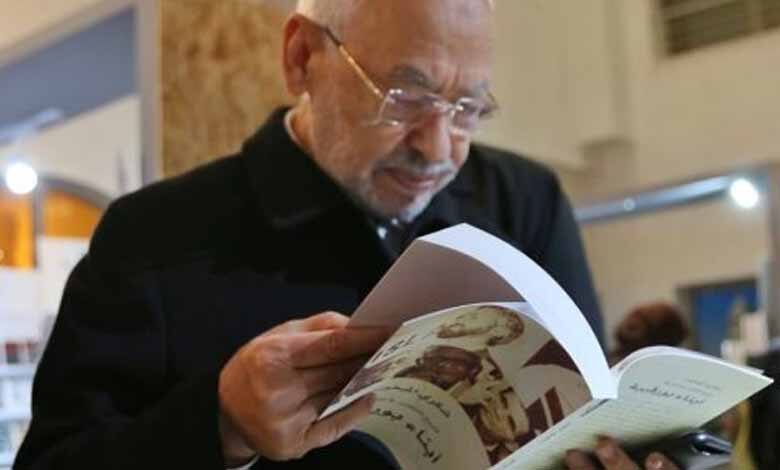Ghannouchi is the godfather of terrorism in Libya… He supported the Muslim Brotherhood, smuggled weapons and facilitated the occupation

“For years, the Tunisian Ennahdha Movement, the arm of the Muslim Brotherhood, has been fueling tensions in Libya as part of Turkish-led coalitions to implement the group’s agenda, with increased support for the outgoing Government of Accord 4 months ago.”
“Ennahdha’s Tunisian movements have set fire to the capital Tripoli and western Libya, where the group has been involved in facilitating the cross-border passage of mercenaries and Turkish arms, taking advantage of the powers of the movement’s head, Rached Ghannouchi, which the Tunisian army and President Kais Saied discerned.”
Ennahdha’s plans in Libya have created a state of congestion inside Tunisia at the political and popular level, as they will embroil the country in alliances against many countries, led by neighboring Libya.
Since Rached Ghannouchi assumed the presidency of the Council of Representatives in November 2019, he has provided every assistance to former President Faiz Al Sarraj, ignoring the role of his country’s President Kais Saied, which caused disputes within the Council of Representatives and requests for briefings that were thwarted by the Brotherhood bloc.
The Brotherhood has not stopped the political demands to prosecute Ghannouchi for his role in Libya, which have amounted to popular trials for Ghannouchi’s dubious diplomatic role and a partisan uprising led by the Free Constitutional Party against his Ennahdha movement.
Ghannouchi extended a helping hand to his comrades in the International Brotherhood Organization inside Libya, providing contacts with the head of the Advisory Council, Khaled al-Mishri, and members of the Justice and Construction Party, the group’s arm, not to mention meetings held between them in Turkey in the presence of Recep Erdogan, to coordinate military cooperation and means of supporting militias in western Libya.
Ghannouchi has treated the Brotherhood presence in Libya as an issue of the group’s presence in North Africa as a whole: he is the godfather of violence, who has delivered lifelines of support to extremist militias, and strongly supported the Turkish presence in western Libya, in exchange for Libya becoming a house of money for the Brotherhood as a whole.
Ghannouchi was also implicated in arms deals to Libya, and made a fortune of about $1 billion, according to an investigation published by the Tunisian newspaper Al-Anwar. Under the title, “Al-Anwar opens the file of Ghannouchi’s wealth,” the Brotherhood leader’s wealth in the country reached about $1 billion, in the form of bank deposits located mainly in Switzerland, and shares in companies outside Tunisia, including 3 companies in France.
The massive wealth came from arms smuggling deals to Libya, where Ghannouchi facilitated the passage of more than 20 arms shipments to Libya in exchange for commissions worth $30 million, the paper said.
Through the smuggling of fighters, Ghannouchi has received imaginary revenues, she said, adding that he has two main functions – money and international relations.
In November last year, the leader of Ennahdha boasted of his ties with the terrorist Muslim Brotherhood in Libya, stressing the “congruence of vision” between the two parties, saying that the Brothers of Libya would like to receive help from Ennahdha to get out of what he described as their “current plight.”
Ghannouchi’s statements come in conjunction with the Libyan National Dialog sessions in Tunis, and in light of the moves of the Sarraj government in Tripoli, observers believe that Turkish President Recep Tayyip Erdogan will soon visit the city.
Observers believe that the version of the Tunisian Brotherhood under the leadership of Ghannouchi has now become the method followed by the West Libyan Brotherhood to convince the other party of its unwillingness to hold key positions. In reality, however, it is they who run these positions behind the scenes, like they did with former President Moncef Marzouki, in addition to controlling the middle administrations in vital institutions, in conjunction with the soft invasion of civil society organizations to control them.












